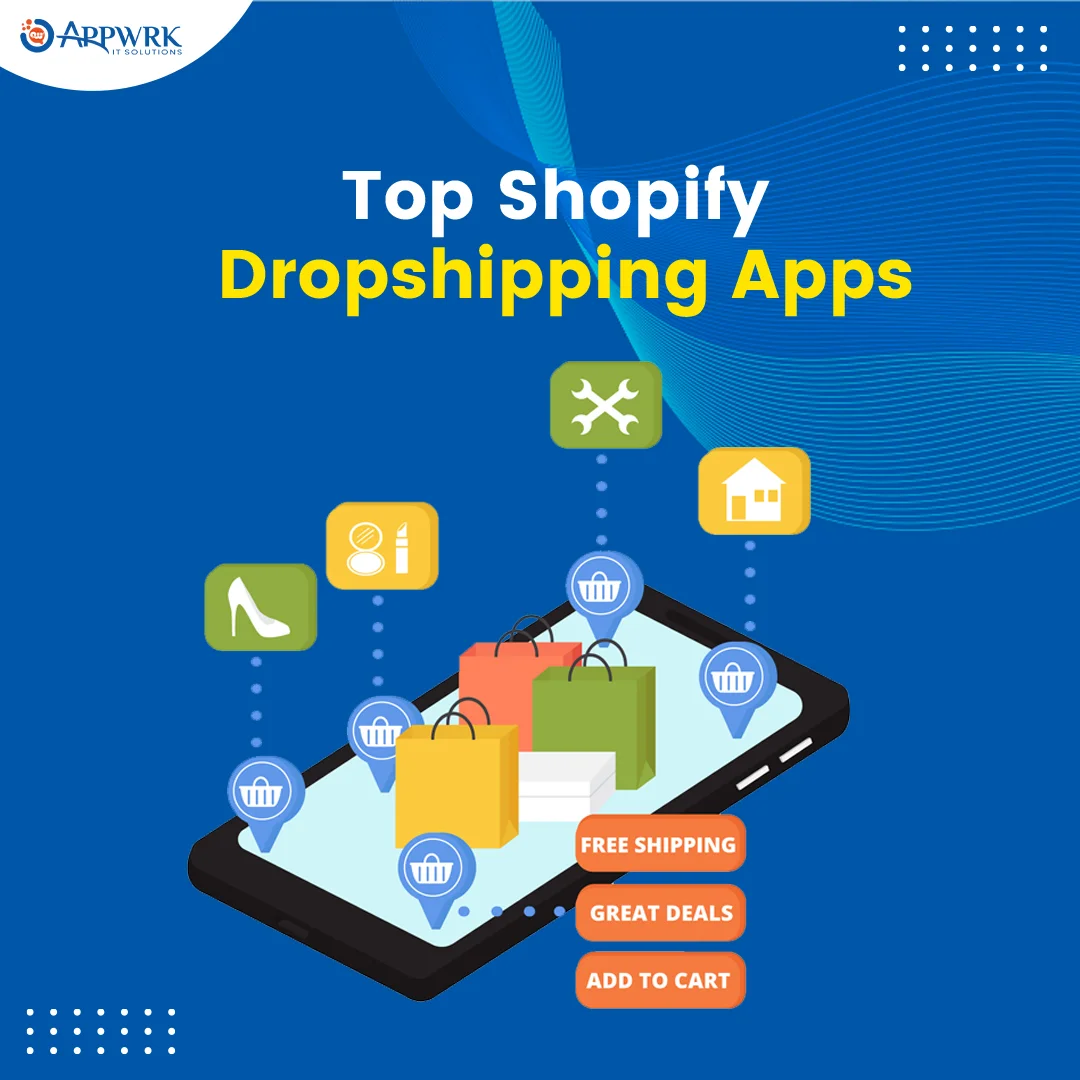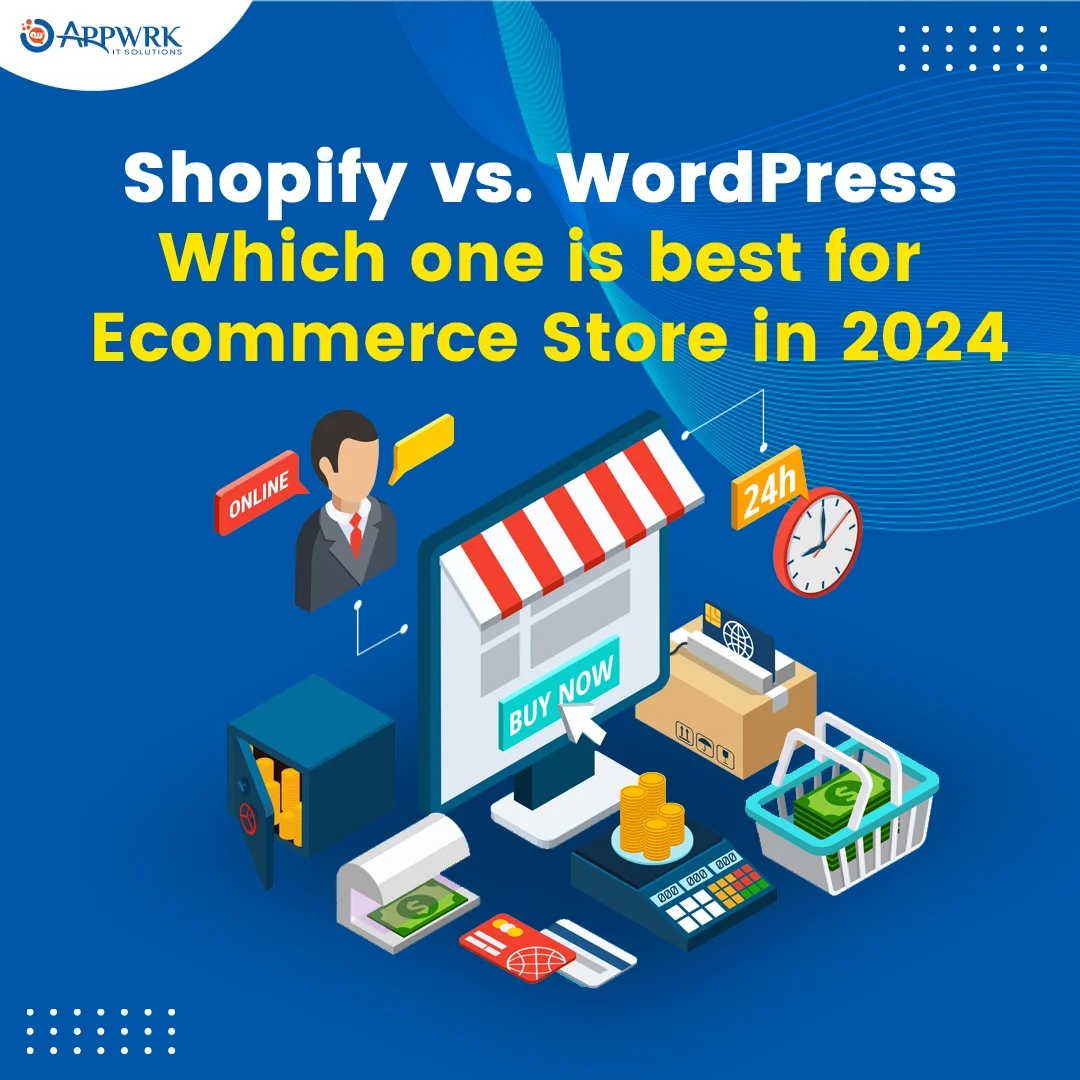17 Pros and Cons of Using Shopify (Must Read 2024 Insights)
When it comes to establishing an online presence, choosing the right e-commerce platform is crucial for the success of any business. In past few years, Shopify has emerged as a leading solution for businesses looking to create and manage their online stores. With its user-friendly interface, robust features, and a wide range of tools, shopify website builder has become a go-to platform for entrepreneurs around the world. However, it’s essential to compare the shopify pros and cons before making a decision.
In this comprehensive guide, we will guide you through the pros and cons of using shopify as your e-commerce platform of choice. Additionally, we will compare Shopify with other leading e-commerce platforms to provide you with a holistic view of the landscape. There are various pros and cons of a shopify mobile app that small and large scale businesses have to know about. Let’s explore more about them in detail below:
Table of contents
- Pros of Using Shopify in 2024
- 1. Caters to a Wide Range of Businesses
- 2. User-Friendly Interface
- 3. Wide Range of Templates and Themes
- 4. Scalability
- 5. Secure Payment Gateways
- 6. Customization Options
- 7. Enhanced Connectivity with Other Platforms
- 8. Thousands of Apps and Plugins
- 9. Excellent Customer Support
- 10. Marketing and SEO Tools
- 11. Privacy and Security
- Cons of Shopify
- Comparison with Other Ecommerce Platforms
- Conclusion based on Pros and Cons of Shopify
- FAQs based on Shopify Advantages and Disadvantages
Pros of Using Shopify in 2024
11 Advantages of using shopify for your ecommerce store. Here are a few shopify benefits that make it one of the best E-Commerce platforms for small to large scale businesses. Lets explore:
1. Caters to a Wide Range of Businesses
Shopify is a versatile e-commerce platform that caters to the requirements of almost all business types. Whether you want to sell physical and digital products or you want to provide portals for service-based events, Shopify has it all. Shopify offers different pricing plans and features to suit your ecommerce business needs.
Additionally, Shopify instantly allows varied businesses to manage their online presence, aiding them to increase their reach to a larger audience and grow in their e-commerce journey.
2. User-Friendly Interface
Shopify’s user-friendly interface makes it easy for beginners and professionals to set up their online ecommerce store. The setup process is so simple that you do not need any technical expertise to operate your e-commerce store. Furthermore, Shopify makes it easy for you to customize your ecommerce stores by offering you thousands of themes and templates. So, you can personalize your store without any coding skills and expertise.
3. Wide Range of Templates and Themes
As you know Shopify caters to varied businesses. Same way, they understand the value of appearance and aesthetics needed for your shopify store. By keeping this factor in mind, Shopify provides you with multiple themes and templates that match your brand identity. Whether you want to sell fashion apparel or provide services related to consulting, freelancing, and more, Shopify has got you covered. Different themes and templates that suit your business needs help to retain customers at a larger level.
4. Scalability
One of the key advantages of Shopify is its scalability. Whether you’re just starting or experiencing rapid growth, Shopify can accommodate your business’s needs. As your business expands, Shopify’s infrastructure can handle increased traffic, orders, and product listings without compromising performance. Shopify scalability ensures that your online store remains fast and reliable, providing a seamless shopping experience for your customers.
5. Secure Payment Gateways
Security is paramount when it comes to online transactions. Shopify offers a range of secure payment gateways, including Shopify Payments, which is built directly into the platform. These payment gateways are PCI compliant, shopify ensuring that your customer’s payment information is encrypted and protected. With Shopify, you can offer various payment options to your customers while maintaining the highest standards of security.
6. Customization Options
Shopify provides extensive customization options, allowing you to tailor your online store to meet your specific requirements. Whether you want to add custom features, modify the layout, or integrate third-party apps, Shopify’s robust customization tools make it possible. This flexibility enables you to create a unique and personalized shopping experience for your customers, helping you stand out in a competitive market.
7. Enhanced Connectivity with Other Platforms
Another advantage of Shopify Services is its seamless connectivity with other platforms. Whether you use accounting software, email marketing tools, or social media platforms, Shopify offers connectivity that streamline your operations. Shopify connectivity allow for data synchronization, automated processes, and improved efficiency, saving you time and effort in managing multiple systems.
8. Thousands of Apps and Plugins
Shopify app store boasts thousands of apps and plugins that enhance the functionality of your online store. Whether you need inventory management tools, customer support solutions, or marketing automation, there’s an app for almost every business need. These apps are developed by third-party developers and Shopify experts, ensuring reliability and compatibility with the platform.
9. Excellent Customer Support
Shopify is renowned for its excellent customer support. Whether you have technical questions, need help setting up your store, or encounter any issues, Shopify’s support team is available 24/7 via live chat, email, or phone. Additionally, Shopify offers extensive documentation, tutorials, and a vibrant community forum where you can find answers to common questions and connect with other users.
10. Marketing and SEO Tools
Marketing your online store is crucial for driving traffic and increasing sales. Shopify offers a suite of marketing tools to help you reach your target audience effectively. From customizable discount codes and gift cards to email marketing campaigns and social media connectivity, Shopify provides the resources you need to promote your products and engage with customers. Additionally, Shopify’s built-in SEO features help optimize your store for search engines, improving visibility and driving organic traffic.
11. Privacy and Security
Maintaining customer trust is essential in e-commerce, and Shopify takes privacy and security seriously. The platform is Level 1 PCI DSS compliant, which means it adheres to the highest standards of data security. Shopify handles all aspects of security, including data encryption, regular security updates, and fraud prevention measures. This gives you and your customers peace of mind, knowing that sensitive information is protected.
Cons of Shopify
In order to make a well-informed choice, it is important to understand the Shopify disadvantages. Let’s see some of them in detail below:
1. Pricing
One of the main concerns for businesses considering Shopify and its pricing structure. While Shopify offers various pricing plans to suit different needs, the costs can add up, especially for small businesses or startups with limited budgets. The monthly subscription fees, transaction fees, and additional costs for apps and themes can sometimes be prohibitive for businesses just starting.
2. Difficulty in Content Management
Although Shopify provides a user-friendly interface, some users may find the content management system (CMS) limiting, especially if they are accustomed to more robust platforms like WordPress. Managing content such as blog posts, pages, and product descriptions can sometimes feel restrictive, particularly when trying to customize layouts or add advanced elements.
3. Dependence on Apps for Advanced Features
While Shopify offers a wide range of apps and plugins to extend its functionality, some users may find themselves reliant on these third-party apps for advanced features. This dependence can lead to additional costs and complexities in managing multiple apps to achieve desired functionalities. It also means that the core Shopify platform might lack some features that competitors offer out of the box.
4. Limited Design Customization Options
Despite Shopify’s selection of themes and templates, customization options may feel limited for some users. While basic customization is straightforward, making more significant design changes often requires knowledge of coding or hiring a developer. This limitation can be frustrating for businesses that want a highly customized and unique online store appearance without the technical know-how or budget for extensive customization.
5. No Email Hosting
One of the biggest shopify drawbacks is that it does not offer email hosting services like other e-commerce platforms. This means that if you want professional email addresses using your domain name (e.g., yourname@yourstore.com), you’ll need to set up email hosting separately with a third-party service. While this isn’t a major drawback, it does require extra steps and potentially additional costs for businesses seeking a seamless email solution.
6. Data Portability and Ownership
Another concern for some users is the issue of data portability and ownership. While Shopify provides tools to export your store’s data, some users may feel restricted in how they can manage and move their data. Additionally, since Shopify is a hosted platform, businesses must adhere to Shopify’s terms and conditions regarding data ownership and privacy, which may not align with every business’s preferences or regulatory requirements.
Comparison with Other Ecommerce Platforms
In 2024, comparing leading e-commerce platforms like Shopify and WooCommerce is crucial for businesses establishing their online presence. Shopify offers user-friendly features, ideal for beginners and small to medium-sized businesses, while WooCommerce provides unparalleled flexibility within the WordPress ecosystem, catering to customization and technical expertise. Similarly, comparing Shopify with Wix reveals Shopify’s advanced e-commerce tools suitable for businesses of all sizes, while Wix’s user-friendly interface targets beginners and small businesses prioritizing ease of use and affordability. Ultimately, the choice between these platforms depends on individual business needs and goals.
Shopify vs. WooCommerce
Which one is better in 2024 and are in trend. The comparison between Shopify and WooCommerce is explained below.
Shopify:
Shopify is a fully hosted e-commerce platform known for its user-friendly interface and comprehensive features tailored specifically for online stores. It provides a hassle-free setup process, handling hosting, security, and maintenance. With its dedicated app store, Shopify offers a wide range of plugins to extend functionality, though some may come at an additional cost. Although Shopify is an ideal platform for beginners and medium-sized businesses, it is crucial to understand the advantages and disadvantages of Shopify before using it. This platform is ideal for users seeking simplicity and ease of use, making it a popular choice for beginners and small to medium-sized businesses.
WooCommerce:
WooCommerce, on the other hand, is an open-source e-commerce plugin for WordPress, offering unparalleled flexibility and customization options. As part of the WordPress ecosystem, it inherits the powerful CMS’s versatility but requires more technical knowledge for setup and management. While WooCommerce itself is free, users need to handle hosting, security, and domain registration, which can incur additional costs. This platform is suitable for users who prioritize customization and have the expertise to navigate the complexities of WordPress and its plugins.
Comparison between Shopify and WooCommerce
| Aspect | Shopify | WooCommerce |
| Ease of Use | Beginner-friendly with a straightforward setup | More complex, requires familiarity with WordPress ecosystem |
| Hosting | Fully hosted solution, no need for external hosting | Requires self-hosting with a separate provider |
| Cost | Monthly subscription, transaction fees possible | Free plugin, but costs for hosting, domain, and plugins |
| Customization | Limited customization compared to WooCommerce | Extensive customization through WordPress themes/plugins |
| Support | Dedicated 24/7 support from Shopify | Community forums and third-party developers for support |
Shopify vs. Wix
Explore the comparison on the basis of feature and functionality of Shopify and Wix.
Shopify:
Shopify is renowned for its e-commerce-focused features and robust tools designed specifically for online stores. It offers advanced functionalities such as abandoned cart recovery, dropshipping connections, and detailed analytics, making it a powerful platform for businesses of all sizes. With its customizable themes and extensive app store, Shopify provides a comprehensive solution for users looking to create a professional and feature-rich online store.
Wix:
Wix, on the other hand, is a versatile website builder that caters to a broad range of websites, including e-commerce sites. Its drag-and-drop interface and user-friendly design make it easy for beginners to create and customize websites without coding knowledge. While Wix offers e-commerce capabilities, it may not have the same depth of features as Shopify, especially for larger and more complex online stores. Wix is ideal for users who prioritize ease of use and affordability, making it a suitable option for small businesses and individuals looking to create a basic online store.
Comparison between Shopify and Wix
| Aspect | Shopify | Wix |
| E-commerce Focus | Dedicated e-commerce platform | Website builder with e-commerce capabilities |
| Features | Advanced e-commerce tools, detailed analytics | Basic e-commerce features, less advanced functionalities |
| Customization | Extensive customization with themes and apps | Drag-and-drop interface, limited customization for e-commerce |
| Ease of Use | Beginner-friendly with a user-friendly interface | Extremely user-friendly with a simple drag-and-drop builder |
| Cost | Monthly subscription Price, additional app costs | Various pricing plans, additional costs for e-commerce |
Conclusion based on Pros and Cons of Shopify
In summary, Shopify emerges as a versatile and powerful e-commerce platform in 2024, offering businesses a user-friendly interface, robust customization options, scalability, and secure payment solutions. While there are a few Shopify downsides such as pricing considerations and content management limitations, its strengths outshine its drawbacks. When compared to competitors like WooCommerce and Wix, Shopify’s focus on e-commerce-specific features makes it a compelling choice for entrepreneurs aiming to establish and grow successful online stores.
At APPWRK, we specialize in helping businesses leverage Shopify’s capabilities to their fullest potential, providing expert guidance, customization services, and ongoing support to ensure a seamless and successful e-commerce journey. Ready to take your online store to the next level? Talk to our experts now to get started!
FAQs based on Shopify Advantages and Disadvantages
Ans: There are following drawbacks mentioned below:
1) Pricing: Shopify can be costly for new or growing businesses, requiring careful consideration of its value.
2) Limited Customization: Design options are somewhat restricted, limiting the ability to create a unique storefront.
3) Processing Fees: Shopify imposes transaction fees, affecting profit margins.
4) No Email Hosting: Shopify lacks built-in email hosting, necessitating external solutions.
5) Complex Exit: Transitioning from Shopify may be challenging due to data migration complexities.
Ans: The Common Shopify Challenges faced by user are as follows:
1) Merge with ERP systems.
2) Merging Shopify stores with Ruby on Rails applications.
3) Multi-channel Connectivity.
4) Adding products to the store.
5) Acquiring customers.
6) Insufficient sales growth.
7) Managing various marketplaces.
Ans: The primary benefit of using Shopify is easy to use and manage for new commerce. Shopify provides list of benefits such as, scalability, easy to use, time saving, customized themes and temples, etc.
Q4: Who can opt for Shopify for an online store?
Ans: Shopify can be utilized by entrepreneurs ranging from small to large businesses. In recent years, Shopify has become the first choice for young ecommerce stores due to its ease of use and management.
Ans: Shopify has several limitations, including transaction fees for using external payment gateways and limited customization options, which often require coding knowledge. The cost of essential add-ons and apps can quickly increase overall expenses. Its blogging capabilities are basic compared to platforms like WordPress, and multi-language support often requires additional, sometimes costly, apps. Additionally, Shopify’s SEO features have some constraints, such as less flexible URL structures.
Although Shopify has a 3-day free trial, it is not free to use. There are several pricing tiers which offer different features and functionalities which you can choose according to your needs. The basic plan is intended for solo entrepreneurs, the Shopify plan can accommodate small teams and the advanced plan will help in allowing your business to scale without limitations. There is also a plus plan which is for complex businesses and is available on a 1 or 3 year term.
Yes absolutely, Shopify is one of the best platforms for E-Commerce, especially for businesses who would like to work on a platform that is easy-to-use and scalable. It is user-friendly as there is no coding knowledge required to use Shopify and it supports the addition of many features into your website. In addition to that, it also allows businesses to optimize their site for SEO, sell simultaneously in multiple channels and offers built-in payment options.
Yes, Shopify is extremely easy to use because of its intuitive interface, easy drag and drop functionalities and pre-defined templates. With Shopify, you can easily drag and drop your elements and add many features like marketing tools and analytics. While some advanced customizations may require a developer’s assistance, Shopify is relatively easier to use when compared to other ecommerce platforms.
About The Author






 Free Quote
Free Quote
















































